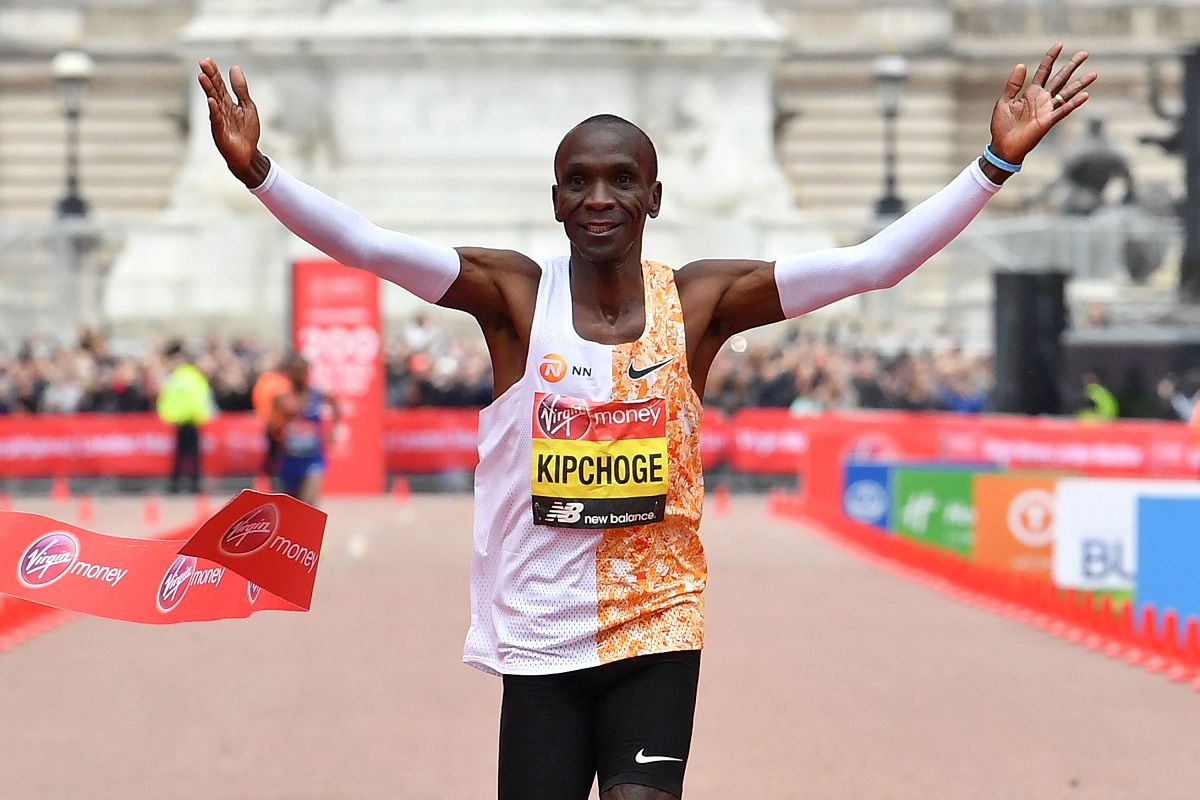Eliud Kipchoge. PHOTO | FILE
Marathon superstar Eliud Kipchoge is now clearly entering the twilight of his great athletics career after mega achievements, while smarting from his terrible showing in the Tokyo Marathon on Sunday, March 3, 2024. He managed a poor 10th position, his worst performance ever.
Since his marathon debut in Hamburg in 2013, which he won, finishing in two hours, five minutes and 30 seconds, Eliud has had a marvelous showing over that long distance. He had a year earlier failed to make the Kenya team to the Olympics after a poor performance in the trials.
The Tokyo race, which is yet another major setback, was won by fellow Kenyan Benson Kipruto, who posted a course record of 2:02:16, continuing the country’s excellence in international athletics, and especially marathon running.
It was unsurprisingly another Kenyan affair, with Timothy Kiplagat coming in second and Vincent Ngetich third, locking out their legendary Ethiopian rivals, some of whom trailed them into the Top Ten.
The double-Olympic marathon champion thus shockingly failed to retain his title in the 17th edition of the Tokyo race. Kipchoge, a living legend in long-distance running, had returned to the Japanese capital where he posted a record of two hours, two minutes and 40 seconds over the same distance in 2022.
Some people have suggested that it is probably time for the 39-year-old athlete to seriously consider hanging up his spikes or risk soiling his mercurial legacy. However, there is no doubt that the marathon star remains the greatest of all time (GOAT) in athletics, with spectacular performances over the years.
Eliud Kipchoge recently returned to Tokyo following a rather dim spell following the death of World Marathon champion Kelvin Kiptum, his apparent successor. Kiptum was killed in a road accident on February 11, at Kaptagat on the Elgeyo Marakwet-Ravine Road, and Eliud’s conduct came under public scrutiny for allegedly not properly mourning his younger colleague. He posted a message of condolence 10 hours later and did not attend the 24-year-old Kiptum’s funeral.
Capitalising on Eliud’s unsure step in this tricky period for him, some people have speculated that he might have been adversely affected in the Tokyo race by the immense online bullying he suffered following Kiptum’s tragic death.
Kiptum became the first man to run under two hours and one minute in the Chicago Marathon on October 8, 2023. He did two hours and 35 seconds, shattering Kipchoge’s world record by 34 seconds. Following this mercurial performance, Kiptum won the 2023 World Athlete of the Year award.
Kipchoge had held the world record of 2:01:09, which he set in the Berlin Marathon on September 25, 2022. Kiptum died four months after his Chicago feat, and, it was not lost on some of the observers that his older colleague and compatriot that he had dethroned did not congratulate him or say anything about the superb run. He chose to keep quiet, as if upset that the younger man had upstaged him, where it really mattered. He was deemed to be a bad loser, which is something that is frowned upon in sports.
Eliud Kipchoge, who has often credited his own great success to discipline and motivation, was born on November 5, 1984. He won all the 10 marathons he entered in major cities of the world between 2014 and 2019, and from 2018-2023, he held the world record.
It began way back in 2003, when the talented Kenyan recorded his first major international win, defeating Moroccan Hicham El Guerrouj in the 5,000 metres at the World Athletics Championships.
In the 2004 Olympics in Athens, he won a bronze medal and stepped up to a silver four years later in Beijing. He had a year earlier grabbed yet another silver in the 2007 World Championship. In 2017, one of his sponsors, Nike, staged a special race to help him lower his time over the distance. He then completed the course in Milan in two hours and 25 seconds.
Two years later, in Vienna this time, in another specially staged race, he managed to reduce the time to one hour, 59 minutes and 40 seconds. The time was not officially recognised by the international athletics authorities, but it put him at the centre of global attention for the great feat, no other athlete had ever managed. In the INEOS Challenge, Eliud Kipchoge was said to have become the first human to break the two-hour marathon barrier, earning him global accolades and recognition.
The special 2019 challenge race would later become the subject of a documentary titled, Kipchoge: The Last Milestone (2021). But he remains human like all of us and his critics should help to ease his mental anguish over the Kelvin Kiptum saga, as people have different ways of mourning not just colleagues and even close friends, but also family members and should not be crucified for this.
However, it is perhaps time for Kipchoge, the country’s greatest athlete, to rise above the negativity and go on with his life, as he naturally winds down the clock on his superb career.
jaywanyama@gmail.com




